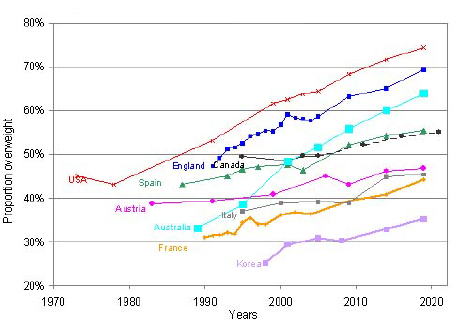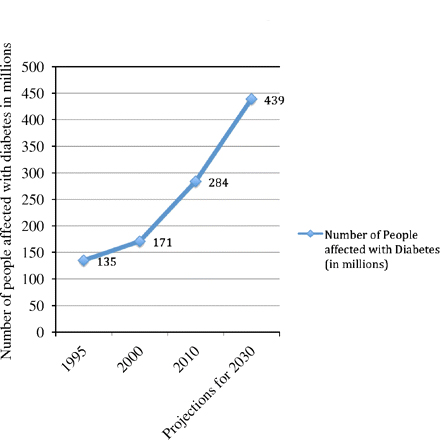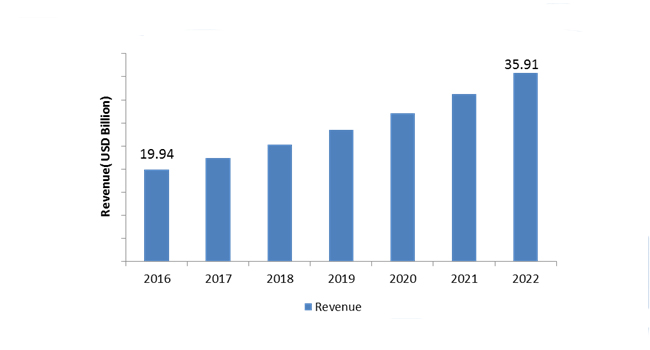Content Sections
By Robert Verkerk PhD
Founder, executive & scientific director
Epidemic of unprecedented proportions
Future projections of overweight, obesity, type 2 diabetes and associated disease herald what may be the greatest epidemic ever to afflict humankind. Billions have been spent on research, and the World Health Organization and governments feel they’ve done their bit to halt the rise in obesity having established a global framework for the problem. But none of it has yet to make the slightest bit of difference to the ever-expanding waistlines (Fig. 1) and rising type 2 diabetes rates among the world’s population.

Figure 1. Actual and projected proportion of overweight in selected OECD countries [Source: OECD Health Statistics]

Figure 2. Actual and projected total number of people with diabetes worldwide [Source: Farag YM, Gaballa MR. Diabesity: an overview of a rising epidemic. Nephrol Dial Transplant. 2011 Jan; 26(1): 28-35].
Looking at the wrong end of the problem (deliberately)
Complex (not necessarily complicated) diseases have complex origins and may have complex (at least multi-faceted) solutions.
Given the research available, it beggars belief that the main solution to the obesity epidemic, as touted by governments, is still based on the premise ‘eat less, move more’ – underpinned by the increasingly shaky ‘calories in, calories out’ (or CICO) model of obesity.
In short, when appetite and energy control systems in the body are hormonally disrupted as occurs in obesity, telling people to eat less and move more is about as much use as a chocolate teapot.
While another model for obesity has a whole lot more going for it - namely the ‘carbohydrate-insulin model’ (or CIM) – it hasn’t been accepted by the mainstream medical community. That’s despite a rapidly growing evidence base both supporting the mechanisms underpinning it and clinical evidence of its effects and benefits for weight loss and type 2 diabetes reversal.
If governments were to recognise CIM, public health messages would not only include sugar reduction campaigns (with which most are already engaged), they would be urging the public to dramatically cut back on all refined carbohydrates and total carbohydrates as well, including digestible starchy ones (e.g. potatoes, bread, pasta, rice). When you reduce carbs, what also happens, your fat intake needs to go up. That means bye-bye low-fat messaging still endemic among government public health policy and Big Food product portfolios. But this would reduce food addiction, Big Food profits and there’d be a need for a mea culpa by governments for 40 years of incorrect dietary advice. Fat chance!
As for type 2 diabetes drugs, they’re projected to map the growth of the similar rise in the disease they’re meant to treat, albeit ineffectively (Fig. 3). As sobering as it sounds, that means governments and industry are doing nothing short of planning for failure.
 Figure 3. Global oral anti-diabetic drug market, 2016-2022 (USD billion) [Source: Zion Research Analysis].
Figure 3. Global oral anti-diabetic drug market, 2016-2022 (USD billion) [Source: Zion Research Analysis].
Failure to successfully treat or eradicate these preventable diseases is only a failure for those who are their victims – the people. ‘The establishment’ – in what might seem like a paradox – wins every time. Big Food and Pharma and their shareholders continue to be winners because of increased profits. Big corporate profits mean lots of advertising revenue for the media so the media will push views that support consumption of junk foods and increased reliance on prescription drugs. It’s a win too for governments as it means more taxation revenues and higher employment.
It’s not difficult to see why the status quo is so hard to change. What the public at large need help in understanding, however, is the biggest illusion of all; that the status quo’s positions are not based on solid science. Quite the contrary.
Greta’s wisdom
Yesterday, 16-year-old climate change activist, Greta Thunberg, addressed the battle-weary British Parliament. In her speech, she said,
“You don’t listen to the science because you are only interested in solutions that will enable you to carry on like before. Like now. And those answers don’t exist anymore. Because you did not act in time…. The fact that we are speaking of “lowering” instead of “stopping” emissions is perhaps the greatest force behind the continuing business as usual. The UK’s active current support of new exploitation of fossil fuels – for example, the UK shale gas fracking industry, the expansion of its North Sea oil and gas fields, the expansion of airports as well as the planning permission for a brand new coal mine – is beyond absurd.”
Those words are as relevant to the human health crisis as they are to the environmental one that threatens all planetary life as we have known it.
The absurdity of business as usual
As young Greta has been saying to partially deaf ears for over two years, the massive cut backs in fossil fuel use that would take nearly all of us way out of our comfort zones remain the most plausible solution to our environmental crises. Viable, scalable solutions such as hydrogen coupled to solar are sitting in the wings, yet the dominance of fossil fuel remains an Herculean obstacle to roll-out.
The same goes for drug-dominant healthcare. You have to look at the science in its totality, including the human ecosystem from a holistic perspective before you see can see how transformational non-drug dependent models of healthcare can be. The science is there, in medicine, in nutrition, and in lifestyle medicine. But it is ignored, compromised or twisted to make sure business as usual continues – to the public’s detriment.
What’s your dream? Just do it!
Those sentiments are not reserved only for Nike. Change has to be about disruption, about breaking the mould. When the system that benefits from business as usual doesn’t have reason to change its ways, we’ve got to take matters into our own hands. Let’s not let governments’ selective hearing disease get in our way!
That’s what we’ve done in developing our blueprint for health system sustainability. We’re now working to put it to the test and we’ll be talking to you a lot more about this work as it unfolds in the coming months.
Our blueprint for health system sustainability provides a universal language for health creation – built on the sustainability, biological and ecological principles. It’s about putting each and every individual – regardless of background – in an empowered position to control his or her health destiny.
Find out more about our lead campaigns below:








Comments
your voice counts
25 April 2019 at 7:59 pm
Obesity and/or Type2 Diabetes is now 'normal' for millions of consumers in the UK - they are resigned to their fate it seems. I believe one way to try and reverse this trend is to 'prescribe' via the NHS, Blue Agave Inulin as a 30 day trial supplement to those patients that agree to take part. This form of indigestible and fermentable (in the gut) fibre consumed under professional guidance could possibly transform the wellness of the Nation - even those who consider themselves 'healthy'! We have quietly conducted our own Inulin Trial for the last 2 years, which was inspired by an excellent BBC documentary featuring a well known - supposedly fit & healthy - TV presenter. At the end of her 'illuminating' body scan session she was recommended to take Inulin by a Professor of Medicine in order to reduce her hidden (visceral) fat. The success of our own trial has been way better that our initial expectations, but will the majority of people who are most at risk choose to spend their money on something that doesn't give them that important taste-bud-entertainment reward? Yes some are following our advice - but not nearly enough to make a statistical difference. Not only is raw unprocessed (not heat treated) Inulin completely water soluble, it can be added to any food or beverage without altering the taste or texture. We are again reminding our health conscious clients to look again at this safe, multi-tasking food complement. As we often say - Time to Get Real!
26 April 2019 at 9:13 pm
The 'deceiver' is very subtle.
Those in the business of farming and controlling humanity have every intention of business as usual - excepting to ramp up the systemic control through the generation or opportunism of every kind of crisis - real or computer modelled.
Science is NOT a forced consensus of asserted dogma - no matter how broad the spectrum of its propagation and nurturing.
Science - is become institutionally corrupt by it corps-gov funding.
Everything is become a psyop or narrative manipulation for socially engineered outcomes.
The freedom to communicate - to both listen and to speak -towards uncovering an honourable and true outcome is denied by a framing in corporate cartels of vested interests.
The use of environmental and apocalyptic guilt to gain backing for a war on Life is presenting itself - and you by allegiance - as a saviour. carbon-guilting, social credits and an 'Internment of Things' to surveil and enforce energy control - and thought control.
Foxy Loxy has you on his neck now as the water flows deeply around you. he never was taking you to Owlsy. Deceit uses what you WANT to be true as much as what you are afraid is about to happen.
Life already has a Sustainer - and the attempt to cut out or deny the living truth and shift to a manual management system is a death cult. Don't give allegiance to the sustaining of a hateful agenda just because it has the most ingenious ways to frame everything as if you MUST commit NOW!!!
there is a voice for truth that does Call you now - and always now no matter how much time you make for delay - but truth is recognisable by a total absence of coercion. You may smile at the recognition of truth - because release of conflict is a lightness of being restored.
Carbon dioxide is life sustaining and falsely demonised to generate hugely disproportionate fear, guilt and confusion.
The toxic results of corporate servicing of humans are being outsourced to the population - including environmental and biocidal guilt. They are what they are by the corruption of the Law, and the progressive corruption of all our institutions - as by design towards dominance over others behind masking elites of 'expertise' backed by Big power and Big Money.
There are toxic and life degrading practices that capture their supposed regulators - as they do their supposed opposition. these are not only not addressed - but are diverted from and protected from challenge by 'cover stories' of emotional manipulation - hook line and sinker.
If it presents itself as empowering, passionate, sustainable and other feelgood correctnesses - then it MUST be true! (sic).
Everything in the Name of Life now does the opposite of what it purports - as in Orwell's 1984.
“Everything is BACKWARDS; everything is upside down! Doctors destroy health, Lawyers destroy justice, Universities destroy knowledge, Governments destroy freedom, Major media destroys information, And religions destroy spirituality". Michael Ellner
The consciousness or frame of thought that we accept without even noticing, is a reversal.
Align in your true nature - for there is no conflict there - but the guidance, sustenance and support of That which undoes deceit and opens to healing that such 'systemic thinking' rules out and deviously suppresses so as to maintain your dependence and allegiance - without which it would have no support.
Technocracy quantises all that lives and has no true discernment of the qualities of shared being. Toxic redistribution through complex financial instruments packaged and presented as empowerment.
Thanks - but no thanks!
29 April 2019 at 12:01 pm
Carbon Dioxide falsely demonised? .... maybe, maybe not. However, we should consider the big picture, and that includes Oxygen. This life supporting element is almost ignored by Politicians and others who don't understand how Nature works. Marine Phytoplankton (according to NASA) provides at least 50% of the Oxygen in our atmosphere. Far more than all the rainforests put together. And on top of that, deforestation is increasing at a rapid rate. We are literally meddling with the Primal Forces Of Nature... do we know what irreversible damage we could be causing? The following quote makes disturbing reading:
"Over the next 100 years, the climate will warm as greenhouse gases increase in our atmosphere," says Andrew Barton, oceanographer and associate research scholar at Princeton University. As the climate warms, Barton says, so will the oceans - bad news for marine phytoplankton, since warm waters contain less oxygen, and therefore less phytoplankton, than cooler areas. Already, gradually warming ocean waters have killed off phytoplankton globally by a staggering 40 percent since 1950".
That's the take home statistic, phytoplankton has been decimated by 40% in less than 70 years! Concerned about future generations? Time to get real!
03 May 2019 at 1:34 pm
Spot on Ian - phytoplankton in the oceans are critical to everything - and because they're not as visible, they're off the political agenda and not prioritised sufficiently in climate change efforts. Acidification of the oceans is a huge problem: http://news.mit.edu/2015/ocean-acidification-phytoplankton-0720
Your voice counts
We welcome your comments and are very interested in your point of view, but we ask that you keep them relevant to the article, that they be civil and without commercial links. All comments are moderated prior to being published. We reserve the right to edit or not publish comments that we consider abusive or offensive.
There is extra content here from a third party provider. You will be unable to see this content unless you agree to allow Content Cookies. Cookie Preferences